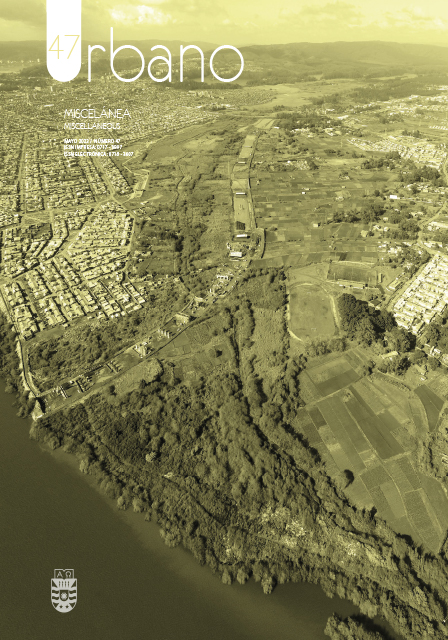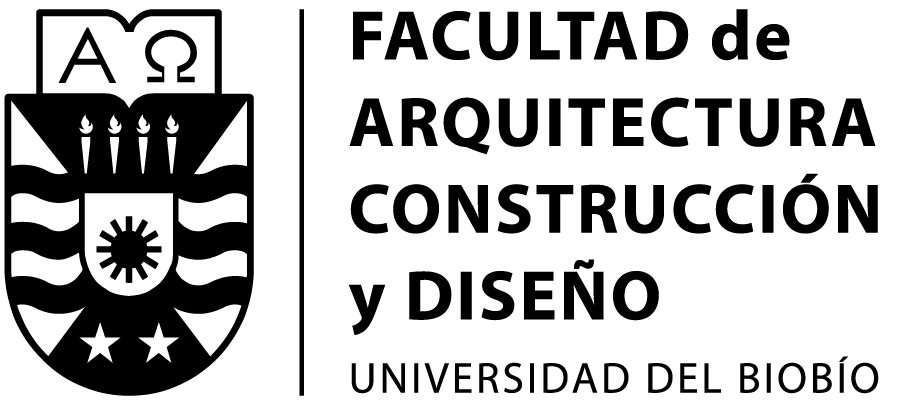Rehabilitating a mass housing neighborhood in Barcelona, a successful transformation?
DOI:
https://doi.org/10.22320/07183607.2023.26.47.07Keywords:
mass housing, rehabilitation, public spaces, social integration, gentrificationAbstract
Mass housing neighborhoods emerged in the second half of the twentieth century as an important part of the affordable social housing stock in Southern Europe, but now these are suffering from social problems and physical degradation. This article, which focuses on a case study of an archetypical transformation of a housing estate in Barcelona (Canyelles), aims at identifying the conditions needed to reduce social inequalities in this type of neighborhood and implement urban rehabilitation programs. The mixed methodology applied consisted of a combination of semi-structured interviews with the main actors involved, a focus group with the neighborhood council, and a multivariate statistical analysis of intra-urban fine-scale social indicators. Based on these methods, the urban transformation projects and their social consequences, which can be observed in the evolution of the social composition of the neighborhood, are analyzed. A significant improvement in the quality of life of the neighbors is seen as a result of the housing rehabilitation and renovation of public spaces programs. Ultimately, these changes are contributing to increasing social integration, as well as initiating a gentrification process.
Downloads
References
AALBERS, M. B. (2019). Financial geography II: Financial geographies of housing and real estate. Progress in Human Geography, 43(2), 376-387. DOI: https://doi.org/10.1177/0309132518819503
Ajuntament de Barcelona. (s. f.). Pla de Barris de l’Ajuntament de Barcelona: Pla de xoc vers les desigualtat dins la ciutat. Pla dels barris de Barcelona, Ajuntament de Barcelona. Recuperado de: https://pladebarris.barcelona/ca/inici [11 de julio de 2021]
ARBACI, S. (2019). Paradoxes of segregation: Housing systems, welfare regimes and ethnic residential change in southern European cities. Wiley.
BELMESSOUS, F., CHIGNIER-RIBOULON, F., COMMERÇON, N., & ZEPF, M. (2005). Demolition of large housing estates: An overview. En R. Van Kempen, K. Dekker, S. Hall, y I. Tosics, Restructuring large housing estates in Europe, 193-210. The Policy Press.
BERNT, M., COLINI, L. & FÖRSTE, D. (2017). Privatization, Financialization and State Restructuring in Eastern Germany: The case of Am südpark: Privatization, Financialization and State Restructuring in Eastern Germany. International Journal of Urban and Regional Research, 41(4), 555-571. DOI: https://doi.org/10.1111/1468-2427.12521
BLANCO, I. & LEÓN, M. (2017). Social innovation, reciprocity and contentious politics: Facing the socio-urban crisis in Ciutat Meridiana, Barcelona. Urban Studies, 54(9), 2172-2188. DOI: https://doi.org/10.1177/0042098016659044
DE GREGORIO HURTADO, S. (2017). Is EU urban policy transforming urban regeneration in Spain? Answers from an analysis of the Iniciativa Urbana (2007–2013). Cities, 60, 402-414. DOI: https://doi.org/10.1016/j.cities.2016.10.015
DITTMER, J. (2010). Textual and Discourse Analysis. En D. DeLyser, S. Herbert, S. Aitken, M. Crang, y L. McDowell (Eds.), The SAGE handbook of qualitative geography , 274-286. SAGE.
FERNÁNDEZ ARRIGOITIA, M. (2018). The gentrification of social housing. En L. Lees y M. Phillips (Eds.), Handbook of gentrification studies. Edward Elgar Publishing.
FERRER I AIXALÀ, A. (1996). Els polígons de Barcelona: L’habitatge massiu i la formació de l’àrea metropolitana. Ed. UPC.
GARCÍA-PÉREZ, S., OLIVEIRA, V., MONCLÚS, J. & DÍEZ MEDINA, C. (2020). UR-Hesp: A methodological approach for a diagnosis on the quality of open spaces in mass housing estates. Cities, 103, 102657. DOI: https://doi.org/10.1016/j.cities.2020.102657
Generalitat de Catalunya (2006a). Llei 2/2004, de 4 juny, de millora de barris, àrees urbanes i viles que requereixen d’una atenció especial. Departament de Política Territorial i Obres Públiques.
Generalitat de Catalunya (2006b). Decret 274/2006, de 20 de juny, pel qual s'estableixen ajuts a la rehabilitació de grups d'habitatges de promoció pública de la ciutat de Barcelona. Departament de Política Territorial i Obres Públiques.
GURRAN, N. & BRAMLEY, G. (2017). Urban Planning and the Housing Market. Palgrave Macmillan UK. DOI: https://doi.org/10.1057/978-1-137-46403-3
HALL, S., MURIE, A. & KNORR-SIEDOW, T. (2005). Large housing estates in their historical context. En R. Van Kempen, K. Dekker, S. Hall, y I. Tosics, Restructuring large housing estates in Europe, 63-83. The Policy Press.
HERNÁNDEZ AJA, A. & GARCÍA MADRUGA, C. (2014). Magnitudes de 20 años de planes y programas de rehabilitación y regeneración urbana. Ciudad y Territorio Estudios Territoriales, 46(179), 184-191. Recuperado de: https://recyt.fecyt.es/index.php/CyTET/article/view/76301 [Fecha acceso 25/05/2023].
HERNÁNDEZ AJA, A., MATESANZ PARELLADA, Á., RODRÍGUEZ-SUÁREZ, I. & GARCÍA MADRUGA, C. (2015). Evolución de las políticas de rehabilitación en Áreas de Rehabilitación Integrada en España (1978-2012). Informes de la Construcción, 67(Extra-1), m024. DOI: https://doi.org/10.3989/ic.14.057
HESS, D. B., TAMMARU, T. & VAN HAM, M. (Eds.). (2018). Housing Estates in Europe: Poverty, Ethnic Segregation and Policy Challenges. Springer International Publishing. DOI: https://doi.org/10.1007/978-3-319-92813-5
JORNET, S., LLOP, C. & PASTOR, J. E. (2009). La rehabilitación/remodelación de la ciudad existente. El Plan Especial de Reforma y Reordenación del Barrio de la Mina y documentos complementarios. En R. López de Lucio (Ed.), Ordenar el territorio: Proyectar la ciudad: Rehabilitar los tejidos existentes: La relevancia del planeamiento a través de los Premios Nacionales de Urbanismo, 2004, 2005, 2006 (pp. 121-165). Gobierno de España, Ministerio de Vivienda.
LANERO, D. (2020). De la chabola al barrio social. Arquitecturas, políticas de vivienda y actitudes sociales en la Europa del Sur (1920-1980). Comares.
LEAL, J. (2004). Segregation and social change in Madrid metropolitan region. The Greek Review of Social Research, 113, 81-104. DOI: https://doi.org/10.12681/grsr.9219
LEFEBVRE, H. (1972). Le droit à la ville. Espace et politique. Éditions anthropos.
LELÉVRIER, C. (2013). Social mix neighbourhood policies and social interaction: The experience of newcomers in three new renewal developments in France. Cities, 35, 409-416. DOI: https://doi.org/10.1016/j.cities.2013.03.003
LELÉVRIER, C. (2021). Privatization of large housing estates in France: Towards spatial and residential fragmentation. Journal of Housing and the Built Environment, 1-19. DOI: https://doi.org/10.1007/s10901-021-09851-y
LONGHURST, R. (2010). Semi-structured Interviews and Focus Groups. En: N. J. Clifford, S. French, y G. Valentine (Eds.), Key methods in geography (2nd ed), 103-113. Sage Publications.
MUSTERD, S., MARCINCZAK, S., VAN HAM, M. & TAMMARU, T. (2017). Socioeconomic segregation in European capital cities. Increasing separation between poor and rich. Urban Geography, 38(7), 1062-1083. DOI: https://doi.org/10.1080/02723638.2016.1228371
PAREJA-EASTAWAY, M. & SÁNCHEZ-MARTÍNEZ, T. (2017). Social housing in Spain: What role does the private rented market play? Journal of Housing and the Built Environment, 32(2), 377-395. DOI: https://doi.org/10.1007/s10901-016-9513-6
ROLNIK, R. (2019). Urban warfare: Housing under the empire of finance (F. Hirschhorn, Trad.). Verso.
ROWLANDS, R., MUSTERD, S. & VAN KEMPEN, R. (Eds.). (2009). Mass Housing in Europe. Palgrave Macmillan UK. DOI: https://doi.org/10.1057/9780230274723
SCANLON, K., WHITEHEAD, C., Y ARRIGOITIA, M. F. (2014). Social housing in Europe. John Wiley & Sons.
SORANDO, D., UCEDA, P. & DOMÍNGUEZ, M. (2021). Inequality on the Increase: Trajectories of Privilege and Inequality in Madrid. Social Inclusion, 9(2), 104-116. DOI: https://doi.org/10.17645/si.v9i2.3845
TAMMARU, T., VAN HAM, M., MARCIŃCZAK, S., & MUSTERD, S. (2016). Socio-economic segregation in European capital cities: East meets West. Routledge.
TATJER, M. & LARREA, C. (2010). Barracas: La Barcelona informal del siglo XX. MUHBA, Museu d’Història de Barcelona: Ajuntament de Barcelona, Institut de Cultura.
UCEDA, P., SORANDO, D. & LEAL, J. (2018). The Diversity of Trajectories of Large Housing Estates in Madrid, Spain. En D. B. Hess, T. Tammaru, y M. van Ham (Eds.), Housing Estates in Europe: Poverty, Ethnic Segregation and Policy Challenges (pp. 241-263). Springer International Publishing. DOI: https://doi.org/10.1007/978-3-319-92813-5
VAN KEMPEN, R., DEKKER, K., HALL, S. & TOSICS, I. (2005). Restructuring large housing estates in Europe. The Policy Press.
WACHSMUTH, D. & WEISLER, A. (2018). Airbnb and the rent gap: Gentrification through the sharing economy. Environment and Planning A: Economy and Space, 50(6), 1147-1170. DOI: https://doi.org/10.1177/0308518X187780
WATT, P. & SMETS, P. (2017). Social housing and urban renewal: A cross-national perspective. Emerald Group Publishing.
WETZSTEIN, S. (2017). The global urban housing affordability crisis. Urban Studies, 54(14), 3159-3177. DOI: https://doi.org/10.1177/0042098017711649
Downloads
Published
How to Cite
Issue
Section
License
Copyright (c) 2023 José Ignacio Vila-Vázquez

This work is licensed under a Creative Commons Attribution-ShareAlike 4.0 International License.
The content of articles which are published in each edition of Habitat Sustentable, is the exclusive responsibility of the author(s) and does not necessarily represent the thinking or compromise the opinion of University of the Bio-Bio.
The author(s) conserve their copyright and guarantee to the journal, the right of first publication of their work. This will simultaneously be subject to the Creative Commons Recognition License CC BY-SA, which allows others to share-copy, transform or create new materials from this work for non-commercial purposes, as long as they recognize authorship and the first publication in this journal, and its new creations are under a license with the same terms.![]()























